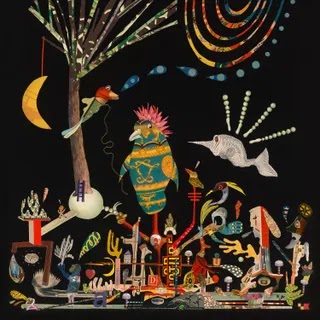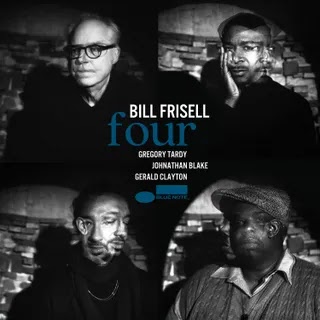The collective’s new album is their most focused yet, possessing the soul of a beat tape and the larger-than-life feel of big band jazz.
Since their inception in 2013, Butcher Brown have used jazz as a framework for experimentation, transforming it into any sonic hybrid their collective mind can dream up. Their grandiose instrumentations are constructed with enough clarity to hear how each of their five members’ individual genius contributes to the sum’s deconstruction of soul and funk, providing the foundation for outside artists like Pink Siifu and Alex Isley to hop onto. Their latest album, Butcher Brown Presents: Triple Trey is a continuation of their ongoing pursuit of genre’s dismantling, finding a natural home within the comfortable confines of hip-hop and big-band jazz.
It makes sense: Butcher Brown was forged in a cultural drainage basin, with its members attending VCU’s jazz program and congregating at Harrison’s home studio Jellowstone. Their return to hip-hop-leaning compositions feels preordained, considering that they formed their group while religiously listening to Ohbliv beat tapes during countless smoking sessions. And while their albums in between explored new territory—dabbling in Afrobeats, or playing with a messy conglomerate of P-funk, bossa nova, and rap—Triple Trey exists as a direct connection to their roots. It’s their most focused project yet, possessing the soul of a beat tape but with a larger-than-life feel.
Warmth and balance are the keys to their songs: Vocalist Marcus “Tennishu” Tenney’s baritone voice acts like an accompanying instrument, nestling into the pockets surrounded by driving percussion and an inviting chorus of brass. His words beget a rousing crescendo on “Liquid Light,” granting room for shouted choruses and solos in the outro, skillfully adhering to the tenets of big band song structure by giving all his accompaniments a feeling of elevated importance. On “Git Along,” his voice sneaks into the foreground behind blaring trumpets and saxophones, which hold the structure as his raps spiral off into an improvisational whirlpool. Meanwhile, on “777,” little more than a drumbeat and brass section are present while he raps, reminiscent of a throwaway from Kendrick Lamar’s Untitled Unmastered. Once he stops, Harrison’s keyboard and Burrs’ guitar kick in, allowing each member to get their moment in the sun.
Butcher Brown’s urge to establish Triple Trey as a jazz/hip-hop album causes a few moments to register as derivative. “Breevin,” with its lengthy percussive breakdowns and Tennishu’s throwback cadence, feels as though it belongs in the lazy middle of a Roots set. They set an impossible bar for themselves to meet with a cover of Notorious B.I.G.’s “Unbelievable,” inherently making you long for the original version’s rap prowess. Still, the infusion of saxophones swirling in the background makes the production feel imaginative, not just a retread.
Where their previous albums were marked by freeform and borderline psychedelic compositions that had the tendency to veer off into the abstract, Triple Trey is primarily about the execution of a plan. Randazzo has said before that their soulful elements were always present, that “everything about this band has become more refined in nature.” Butcher Brown’s latest adventure in genre sampling feels concentrated, as if it's the manifestation of the group figuring out how to make individual jazz elements combine into something bigger and grander.
















0 comments:
Post a Comment